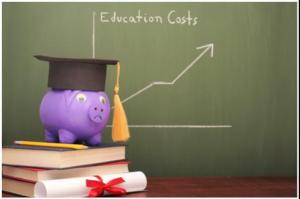What is Important to Know About School Loan Interest Rates?

As the time comes to arrange for payment of college tuition, students and their families begin to consider the nature and expense of school loan interest rates offered by both the federal government and private lenders who offer their own methods of financing a college education. Interest rates are the key piece of information to consider when determining not only how much it will cost to attend a school, but also how much it will cost to finance a given tuition rate so that a full payment of any outstanding balance can be made during each year of study. Before agreeing to take out any student loans, consider important information about their interest rates.
Undergraduate Direct Loans Currently Offer the Best Guaranteed Rate
Students who are pursuing their first undergraduate degree will receive the best possible rate on federal student loans, often called Direct Loans. Currently, that rate stands at just 4.66 percent for all borrowers, regardless of their overall credit health. These rates apply equally to subsidized and unsubsidized student loans for undergraduate degree programs, which means students won't be punished for taking out an unsubsidized Stafford Loan if they need it to cover extra expenses during their time in an undergraduate program. It's important to remember that a subsidized student loan will not accrue interest while a student is in school, but a subsidized student loan will accrue interest at the current, 4.66-percent rate as soon as the loan is originated.
Resource: The 30 Best Affordable Online Colleges
Graduate Student Loans Have a Higher Interest Rate
For graduate students, the government offers a far higher annual loan limit that can be used to cover the higher average tuition costs of advanced degree programs. This is the good news. The bad news is that these loans are all originated as unsubsidized loans, with interest accumulating on the balance from the first day the loan is made. Currently, the federal government charges a slightly higher rate to graduate students than it does to undergraduate. That rate, set at 6.21 percent, is still lower than the overall average rate charged by private lending institutions for their private student loan products. It represents a significant savings for graduate students who take out a federal loan instead.
Private Student Loans Base Interest Rates on Credit, Cosigners, and More
Private student loans should always be a student's last resort, whether they're studying at the undergraduate, graduate, doctoral, or professional level. That's because these loans offer no guaranteed, low-interest rate. Instead, most private student loans offer students a range between roughly 5.99 percent and 21.99 percent APR, based solely on their credit picture and the credit picture of their often-required cosigner. Even the lowest rate offered by private student loans is often higher than the government's rate for federal Stafford Loans or Direct Loans, which can add up over the 10, 20, or 30-year repayment period that these loans require. These loans often offer fewer ways to defer payment during times of economic hardship or continued study, which can make them both more expensive and more difficult to maintain after origination.
Great Rates and Loan Programs Are Available to Students
Federal student loan rates have fallen from their high of 6.80 percent in recent years, making them more affordable to students who need to take out both subsidized and unsubsidized loans to cover the high cost of a college education. As with all lending products, however, school loan interest rates vary over time and represent a significant cost of education that should be researched before agreeing to the loan's terms and conditions.
Get prepared for your next steps
Use articles and resources to uncover answers to common questions, get guidance on your goals, and learn about applying to schools.
Discover a program that is right for you.
Explore different options for you based on your degree interests.
